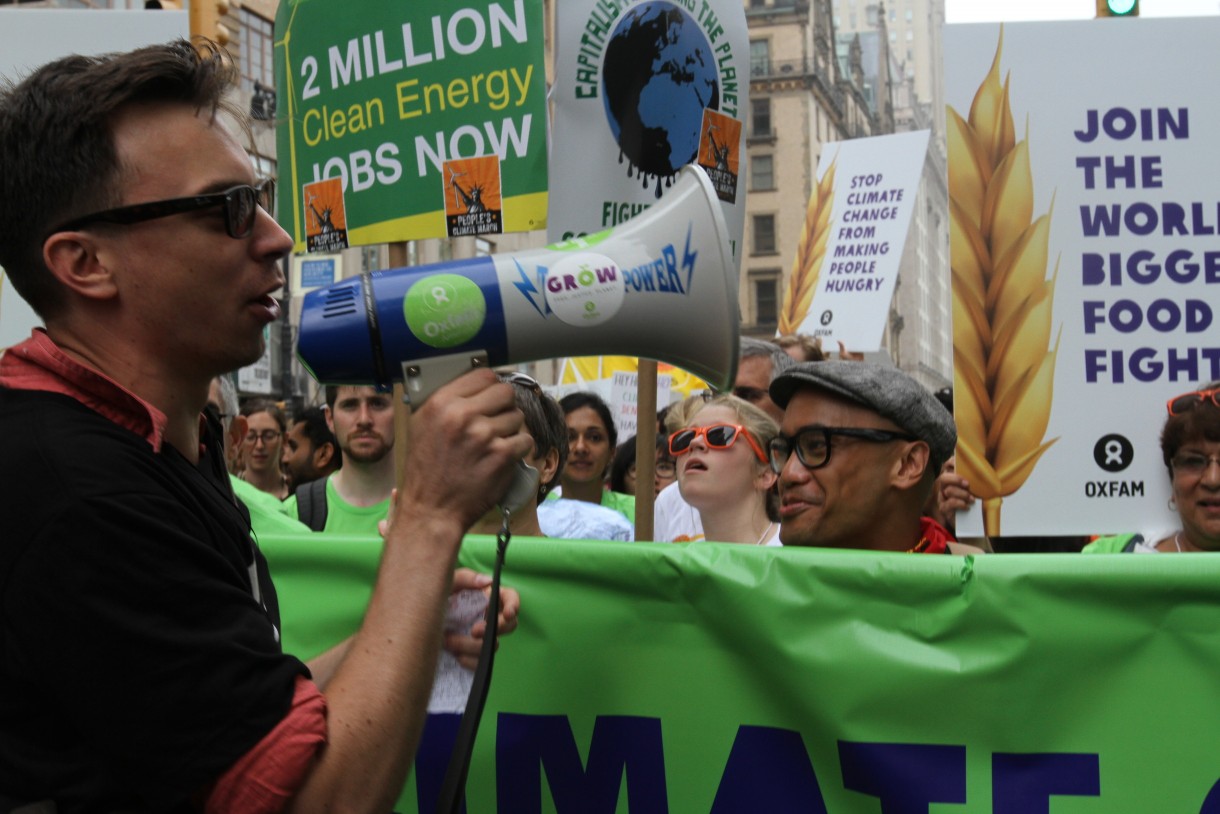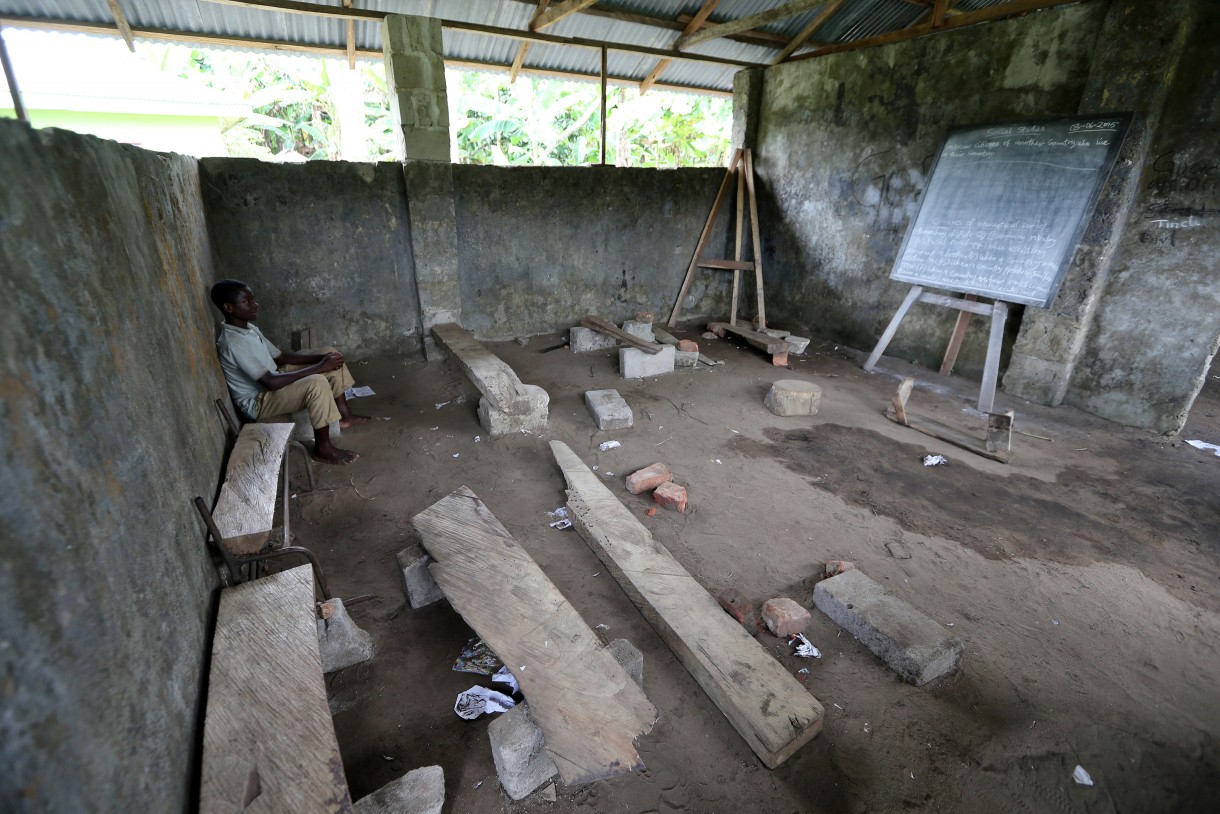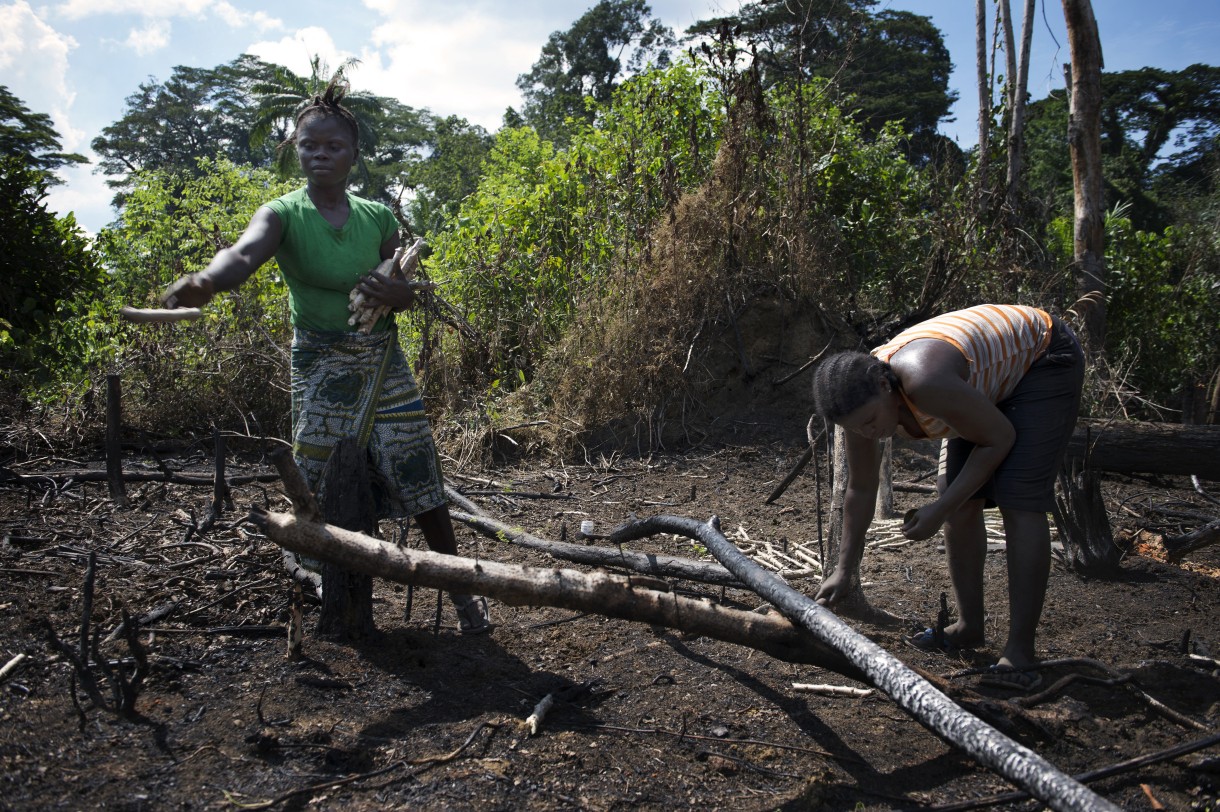Winning battles in war on poverty
 Oxfam supporters in Belgium put pressure on world leaders before Paris climate change meeting. Photo: Oxfam SOL.
Oxfam supporters in Belgium put pressure on world leaders before Paris climate change meeting. Photo: Oxfam SOL.
We’re in a long struggle against poverty, but your participation in the fight is making a difference.
Check out the headlines from last weekend: There’s a major international agreement coming out of Paris that might finally bring countries together to slow down climate change and help the most severely affected survive.
And here in the US, our own Securities and Exchange Commission (SEC) finally re-issued a draft rule for an important part of the 2010 Dodd-Frank Wall Street Reform and Consumer Protection Act that will make visible payments by corporations to governments in exchange for oil, gas, and minerals.
Both of these developments will have far-reaching effects on poverty: Either by slashing dangerous carbon pollution and helping the most vulnerable people (who are the least responsible for emitting greenhouse gases) to survive; or making visible vast sums from oil, gas, or minerals that should be available for schools and hospitals. These policy changes can help mobilize hundreds of billions of dollars in investments to help the poorest people.
In both these cases, Oxfam supporters played an important role. Leading up to the talks in Paris, you marched in New York during the UN General Assembly, gathered signatures and delivered petitions to world leaders, submitted photos of your eyes to make clear you were watching them, and helped us bring the most vulnerable people to the talks to tell their own stories. Oxfam supporters and many others pushed their governments to approach the Paris meeting with a sense of urgency.
The results show: Although overall we don’t think the agreement goes far enough to protect the interests of poor people, the US doubled its promised contribution for climate change adaptation, which “sent an important message to the world,” according to my colleague Heather Coleman, one of Oxfam’s climate change policy advisors in Paris.
“When we first started working on climate change, it was very much about polar bears,” says Vicky Rateau, campaign manager for Oxfam. “But in Paris…the focus was on the effects of climate change on people. Oxfam supporters helped change the focus!”

Your participation in Oxfam’s Behind the Brands campaign urged food companies to find ways to reduce carbon emissions. One of the biggest companies, Kellogg, announced in the middle of the Paris talks that it would reduce its greenhouse gas emissions by 65 percent, and cut carbon emissions by 50 percent across its supply chain. Roughly 230,000 Oxfam supporters have participated in the Behind the Brands campaign — all food consumers, so it’s hard for big food companies to ignore them!
Here in the US, the long-awaited re-issue of the rules to enact Section 1504 of Dodd-Frank by the SEC was thanks to public pressure from individuals like you who signed petitions demanding action from the SEC and, critically, a lawsuit Oxfam brought against the agency. The draft rule reflects the concerns of our allies and partners in resource rich countries who wrote the SEC requesting detailed disclosure from companies about each of their oil wells, mines, or pipelines, to better help them track the revenues. With greater transparency, people in poor communities can hold their governments responsible for how the funds are spent.

I’ve talked with farmers in Liberia who say the rainfall pattern has become so erratic, they can’t decide when to plant their crops. A student I met in Nigeria last June said she used to have to carry her own chair to school if she wanted to sit somewhere other than on a dirt floor of a classroom just meters from a pipeline exporting thousands of dollars of oil every hour. We could provide food for Liberian farmers or chairs to students in the Niger Delta but it would never solve the larger problems that created these situations to begin with. Changing laws and policies that lock people in poverty will.
You’re helping us do it, through your time, your actions, and your financial support. These wins are proof that the money, energy, and attention you invest to help push for change has a substantial return for people all over the world.

2015 has been a year in crisis—but you can bring hope to families around the world. Help people lift themselves out of poverty with your tax-deductible year-end gift today.